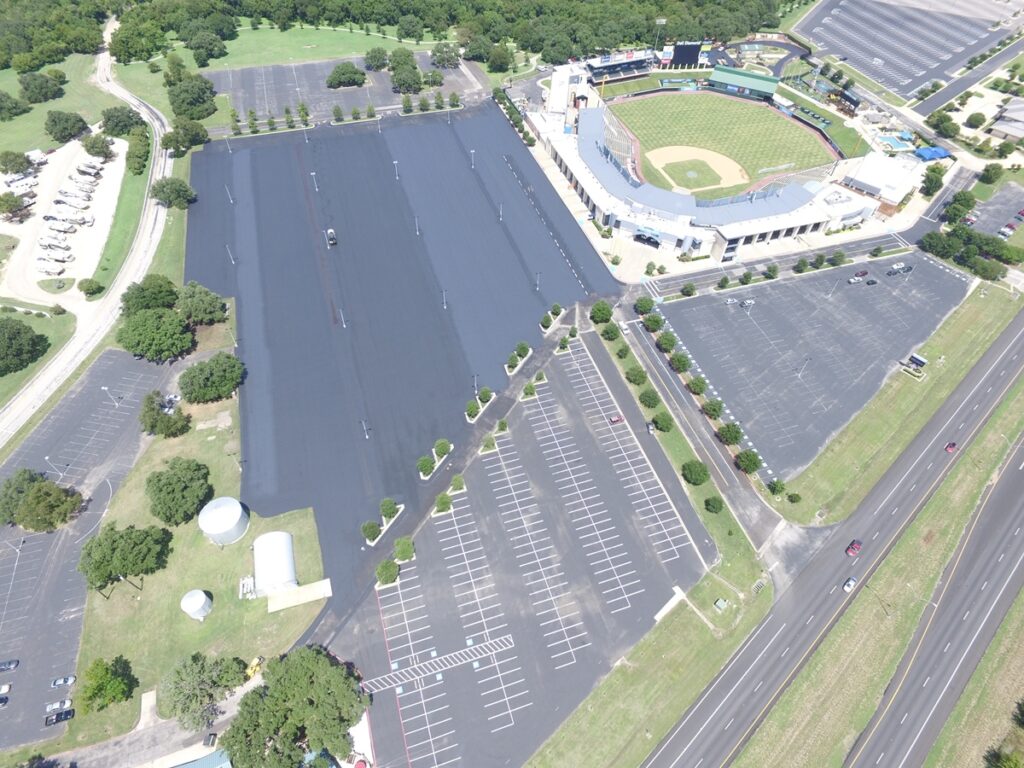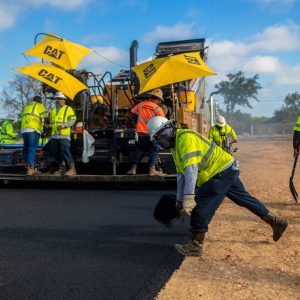 Sealcoating provides several benefits. It prevents the premature deterioration that asphalt pavement can suffer from exposure to automotive fluids and other caustic chemicals. It blocks the sun’s UV rays that can break down the pavement’s bonds as well as fade the color. Sealcoating refreshes the dark color that the pavement had when new, creating a nice backdrop to make pavement markings more visible. It improves the appearance of the pavement by covering minor surface flaws. Sealcoating also makes it easier to remove stains. However, if sealcoating is not applied properly, you will not derive the benefits that you expect.
Sealcoating provides several benefits. It prevents the premature deterioration that asphalt pavement can suffer from exposure to automotive fluids and other caustic chemicals. It blocks the sun’s UV rays that can break down the pavement’s bonds as well as fade the color. Sealcoating refreshes the dark color that the pavement had when new, creating a nice backdrop to make pavement markings more visible. It improves the appearance of the pavement by covering minor surface flaws. Sealcoating also makes it easier to remove stains. However, if sealcoating is not applied properly, you will not derive the benefits that you expect.
Sealcoating: Is Thicker Better?
Consider what happens when you apply a thick coat of paint instead of two thin coats, in this case, thicker is not better. The paint will not cure properly and will be prone to cracking. However, if sealcoating is applied too thickly, it will not dry evenly. In addition, your sealcoating will not hold up to traffic and will need to be reapplied ahead of schedule to maintain adequate protection for your pavement. Thicker can be better when you are considering the number of coats. When you apply the correct number of coats, while ensuring adequate dry time, thicker will lead to longer life. The industry standard is for two coats, but for higher traffic roads or parking lots, a third coat is recommended.
Does Equipment Matter?
Customers sometimes ask whether a squeegee or a sprayer is best to ensure that sealcoating is not applied too thickly. Unfortunately, there is no answer to this question that holds true for all situations. The skill of the operator, the condition of the pavement and the quality of the equipment all play a part in the success of the job. For example, an inexperienced operator might fail to choose the correct spray tip for a specific job, resulting in an uneven application of sealant. However, an unskilled worker with a squeegee can also apply sealant that is too thick. Conversely, trained, experienced workers can apply an even coat in the proper thickness with either tool — if the equipment has been adequately maintained and is working properly. In fact, there are many jobs that require the use of both squeegees and sprayers to access all areas and produce satisfactory results.
Does the Type of Sealcoating Matter?
There are slight variances in sealants produced by different manufacturers. Some formulas are just a little thinner than others, and if additives are needed, they can alter the viscosity ever so slightly. Contractors typically measure the viscosity of the sealant they will be using just prior to starting the application. This helps them determine the exact settings for their machines and calculate the curing time with greater accuracy. However, it should be noted that no manufacturer formulates sealcoating to be applied in one thick coat. Instead, sealants should be applied in thin, even coats, allowing each coat to dry before the next coat is applied.
Alpha Paving Is the Industry Leader in Sealcoating in Texas
Each year we apply more gallons of sealcoating and more gallons of airport sealcoating than any other contractor in Texas. Alpha Paving Industries is full-service paving company service in Austin, TX and most locations in Central Texas. In addition to sealcoating, we offer asphalt paving, parking lot striping, concrete work, asphalt repairs, pavement markings and asphalt resurfacing. We routinely provide our services to municipalities, airports, retailers, shopping malls, apartment complexes, office parks, hotels, restaurants, schools, churches and HOAs. We deliver quality results at competitive rates. To request a free quote, submit the online form or call (512) 677-9001.







